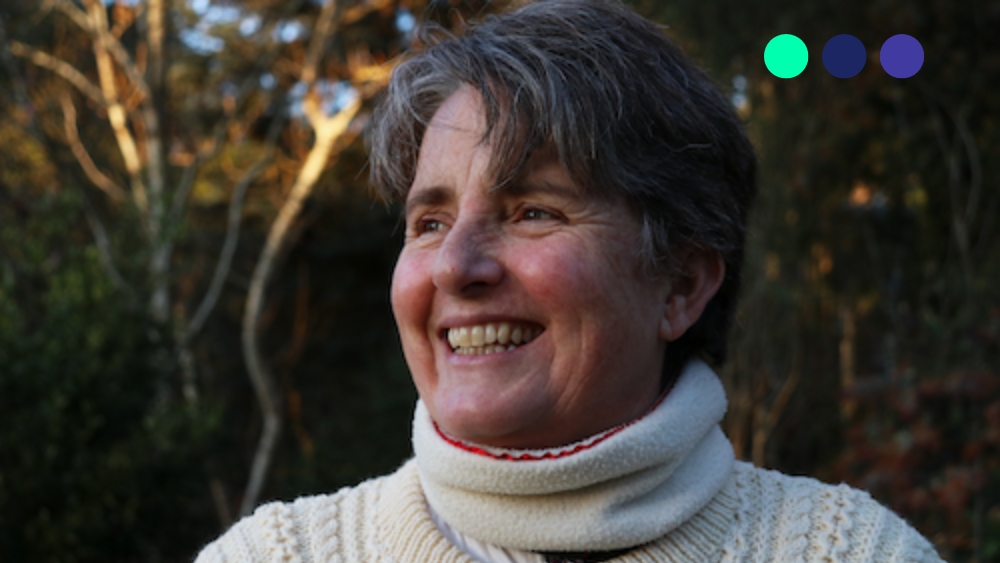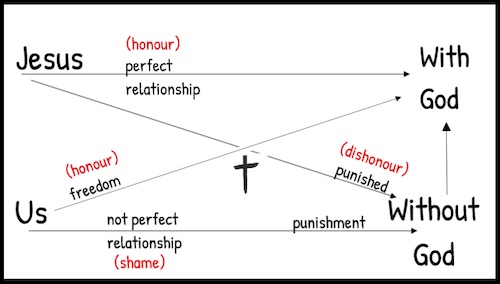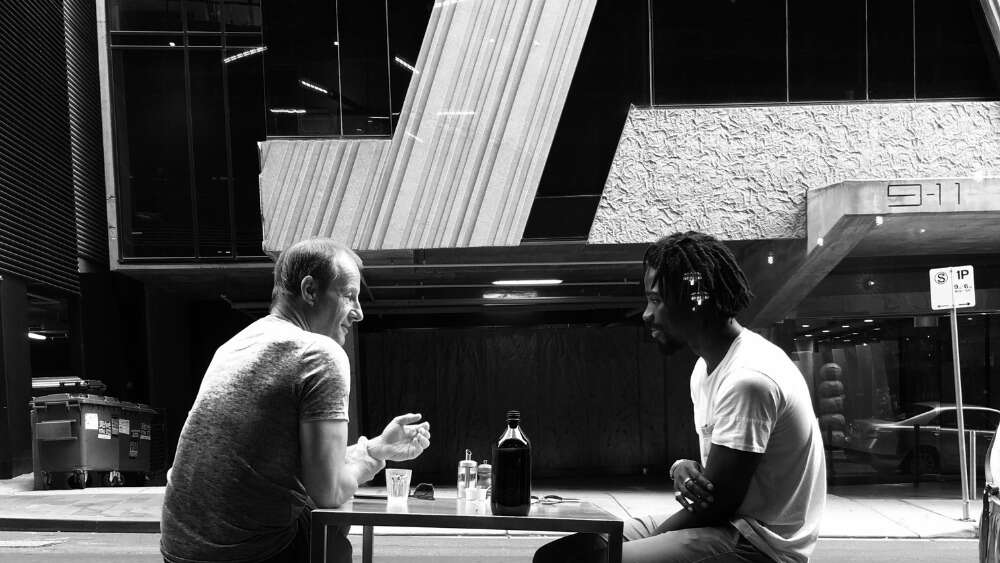Karen Morris reckons she can often see when someone wants to be a Christian.
“It’s like it’s tattooed on their forehead,” says the former missionary and evangelism trainer based at St Thomas’ in Melbourne’s Burwood. “I don’t think most people can tell, but it’s obvious to me.”
What Karen is observing in people is a level of disquiet or unsettledness that expresses itself sometimes in engagement and sometimes in pushing away the whole God question.
“But I just keep engaging with it. And talking about it and asking, ‘do you want to keep talking about this?’. I think it’s something about the way God wires evangelists.”
Karen didn’t realise she had the gift of evangelism for the first ten years after she became a Christian in Year 12. But she was always passionate about telling people the good news that had saved her.
“For me, the passion arises because I recognise that God saved me spiritually and physically. If he hadn’t saved me when he did, then I would have committed suicide then or later. I still suffer from depression, so there was never much chance that I was going to survive on my own without God’s help.”
When Karen moved from Tamworth to Sydney to go to university, she knew no one. But that didn’t stop her telling everybody the best news she’d ever heard – “Jesus is how God fixes the mess.” In the three years of her undergraduate degree, nine of her friends became Christians. “It was like gambling and winning on the first hand – I was hooked! I thought it was entirely normal and I couldn’t see what everyone’s problem with evangelism was,” she says. “Looking back, it’s clear that God was doing something different in me, that he gifted me as an evangelist.”
While Karen recognises that her gift as an evangelist makes her “weird,” she points out that she doesn’t know your friends or have any contact with your work colleagues. So, while we can’t expect to be as gifted as Karen, we still need practical tools to help us share the gospel in ordinary, everyday conversations.

Karen Morris
That’s where Karen can help. She has two websites that offer videos, conversation spirals and gospel diagrams to help anyone learn to share the gospel clearly and answer the hard questions that consistently come up.
“Our job is to tell the gospel as clearly as we can when we get the opportunity. God’s job is to convert people – that’s way above your pay grade.”
The majority of Karen’s evangelism training happens at Monash Christian Union but she also works as evangelism coordinator at her church and is available to speak and train at other churches.
Karen’s top tips for everyday evangelism:
Work out why you love Jesus
“Work out yourself why you love Jesus and talk about that because the more you can express that, the more it makes sense to the other person.”
Write down answers to common questions.
“Right back at the beginning, when I was first a Christian, one of the things I would do was write down the point where I got stuck in a conversation,” she says.
“Then, when I had time to think, I would work out an answer, but it had to be written.”
Karen said she realised quickly that the same questions come up over and over and over again.
“Lots of the early period of my Christian life was about practising answers to questions, and reading and reading. I read every evangelistic book that comes on the market for two reasons. One, to look for books to give away to people. And the other, even if they’re bad ones, to look for stories or illustrations or a good way of explaining something or just an idea.”
Learn what happens when we become a Christian.
“One of the things I do with groups is to get them to look up a whole stack of passages that talk about what happens when we become a Christian. Some descriptions are: we are justified, we are redeemed. One of them is we are made a spectacle to the universe (1 Corinthians 4:9)!”
“There are 37 of these different words, and one of the exercises that I get people to do is to describe becoming a Christian using these other words. We all default to saved, but that’s not what the Bible uses. We are redeemed, we are cleansed, we were bought with a price, we were brought back, we are taken home – there’s lots and lots of them. So, we need to develop our language and avoid the rote words.”
Practise a one-minute gospel diagram
“At some point in the first ten years of my Christian life as an evangelist I developed my gospel diagram.”
Karen’s gospel diagram allows you to explain the gospel briefly – in about one minute. It begins with the idea that Jesus had a perfect relationship with God, others, himself, and the world. And we have a ‘not perfect relationship’ with God, others, ourselves, and the world, which means we are separated from God. We are without God.
 Karen used Melbourne’s prolonged periods of COVID lockdown to develop videos on the five big ideas that she had honed over time in evangelism. Her website Graphic Faith has an “Exploring faith” section for non-Christians while “Explaining faith” is for Christians to learn how to draw the diagrams.
Karen used Melbourne’s prolonged periods of COVID lockdown to develop videos on the five big ideas that she had honed over time in evangelism. Her website Graphic Faith has an “Exploring faith” section for non-Christians while “Explaining faith” is for Christians to learn how to draw the diagrams.
Go deep in a conversation spiral
Karen recommends this video about conversation spirals and how to have conversations that delve deeper.
“When I saw this idea, I realised it’s a description of what I do intuitively, but I can teach people how to do that,” she says. The key is to ask lots of questions, but not just superficial, general questions, but specific questions about the heart.
“I was training people last night in this, and was saying, ‘If you’re talking about the Voice to Parliament, you could ask, ‘What are you going to vote or what do you think?’ But you could subsequently ask, ‘What do you think the issues are and would they be issues for you?’ So, shifting it from the external to internal, with the hope of maybe being able to have a conversation about the eternal things of God. Therefore learn to ask questions, deep questions.”
Don’t censor your God language
“If I would say to you, ‘I prayed about this and I’m really cross with God because he didn’t say yes,’ then I would also say that to my non-Christian friends. I try to talk the same way with both groups. I don’t censor my God language.”
Develop an evange-list
Make a list of people that you want to have gospel conversations with then pray for those people regularly, consistently. And then when God presents the opportunities, take them. Don’t just observe them going by.
Find another word for sin
“My gospel explanation doesn’t use the word sin because what I mean by sin and what the normal non-Christian means by sin are two different things. We are not helping the explanation if we’re using language that we know they don’t understand.” Karen’s solution is to talk about the separation we have from God through our broken relationship with him.
Be warm and keep engaging
“If I say something that I think has offended someone, or if sometimes people back off, I just keep offering coffee or even say ‘I feel like I might have offended you, but let’s have a coffee.’
“I feel like we have bought into the world’s view that talking religion is offensive. I think, ‘No, actually, this is who I am. You can avoid talking about it, but this is who I am.’ I once was meeting up with someone and she said she wanted to keep meeting with me, but she didn’t want to talk about God anymore. ‘Well,’ I said, ‘but this is who I am. God is the most important thing in my life. I want to keep meeting up with you, but I don’t want to have to be somebody different.’”
Learn from your mistakes
“When you realise you missed an opportunity, write down: ‘What was the opportunity and what could I have said?’. The advantage of writing it down is the next time you are ready, and there is always a next time. Don’t just let it go by; see it as a learning opportunity. Then you can say to that person, ‘You know that question you asked me? I’ve been thinking about it, and I didn’t answer it the way I really wanted to. Here’s what I’ve thought since then.’”
The back-to-front idea
Karen has a good answer for an argument that I find comes up a lot in conversations with people about Christianity – that all religions are pointing to the same God and are interchangeable.
Karen sees it this way: Christianity is back to front. In Christianity, at the start, you are given salvation, or you’re given life in Christ, and you live a good life in gratitude. “Everybody thinks that doing good is to achieve heaven or to achieve relationship with God. All the other religions – Islam, Judaism, Hinduism, Buddhism – work that way, so you are doing good to get to heaven, paradise, nirvana, whatever.
“In Christianity, you’re doing good in gratitude in contrast to doing good to impress somebody or achieve something. You can’t say they’re all the same because, in fact, Christianity completely contradicts the others.”
“If a person says, ‘I think they’re all ways to God’ then they’re saying God is contradicting himself. Sometimes, (depending on my relationship with the person), I might say to them, “That is actually offensive to every religious person in the world. In the process of attempting to be tolerant, you offend. If you said to a Muslim, Islam is the same as Christianity, Judaism, Hinduism, and Buddhism, they would crack it.”
“Sometimes, if I’m game, I might say “you’re actually speaking out of ignorance because you don’t understand.” And then at that point, I might say, “Can I explain to you the centre of Christianity and explain the gospel diagram?”
Email This Story
Why not send this to a friend?


